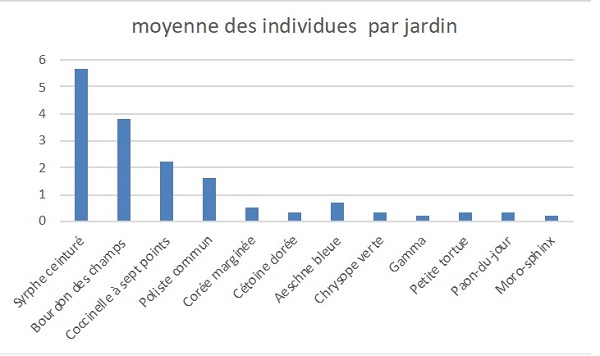 Hoverfly;
Credit: natur&ëmwelt
Hoverfly;
Credit: natur&ëmwelt
On Wednesday 6 September 2023, the Luxembourg-based nature conservation non-profit organisation natur&ëmwelt announced the results of its census action regarding the occurring frequency of insects in local gardens.
The natur&ëmwelt action "Méi wéi Beien!" (more than bees) took place for the first time from 9 to 18 June 2023. This census action aimed to help evaluate the number of species frequently encountered in residential areas and highlight trends, such as the increase or decrease in insect populations. The focus of this census action was on species living around the house and garden, such as hoverflies, bumblebees or ladybirds. A total of twelve species were selected.
Furthermore, natur&ëmwelt also wanted to raise awareness with this campaign. People were invited to devote an hour to observing “what is crawling around the house” and thus improving their entomological knowledge (knowledge of insects), according to the motto "We only protect what we know".
In this first count, girdled hoverflies came in first place with 576 sightings, followed by field bumblebees with 389 sightings and seven-spotted ladybird beetles in third place with 229 sightings.
The same result was obtained with regard to the frequency of animals. Thus, the girdled hoverfly was recorded in 85.3% of the gardens, the field bumblebee in 84.3% of the gardens and the seven-spotted ladybug in 66.7% of the gardens. The graph below shows the most frequent species (from left to right) and the average number of individuals present in each garden.

- Syrphe cenituré - marmalade hoverfly
- Bourdon des champs - field bumblebee
- Coccinelle à sept points - seven-spot ladybird beetle
- Poliste commun - paper wasp
- Corée marginée - dock bug
- Cétoine dorée - rose chafer
- Aeschne bleue - blue hawker (dragonfly)
- Chrysope verte - common goldeneye lacewing
- Gamma - silver Y
- Petite tortue - small tortoiseshell (butterfly)
- Paon-du-jour - peacock butterfly
- Moro-sphinx - hawk-moth
At the end of the action, ten winners were drawn among all the participants. The winners will be contacted and published on the natur&ëmwelt website, the NGO noted.








